
The 13 Healthiest Vegetables on Earth
Spinach
High in beta-carotene and lutein, two types of antioxidants that have been associated with a decreased risk of cancer and may reduce the risk of chronic disease, as it may reduce risk factors such as high blood pressure.
One cup (30 g) of raw spinach provides 56% of your daily vitamin A needs plus your entire daily vitamin K requirement.

Carrots
Carrots are especially high in beta-carotene, which can turn into vitamin A in the body. Their high antioxidant content may help reduce the risk of lung and prostate cancer. Carrots are also high in vitamin C, and K.
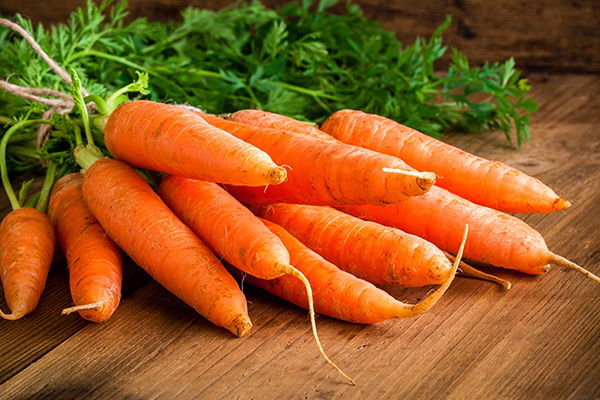
Broccoli
Broccoli is a cruciferous vegetable that contains sulforaphane, a compound that may prevent cancer growth. Eating broccoli may also help reduce the risk of chronic disease by protecting against oxidative stress.
A cup (91 g) of raw broccoli provides 116% of your daily vitamin K needs, 135% of the daily vitamin C requirement and a good amount of folate.

Garlic
Several studies have shown that garlic can regulate blood sugar, promote heart health, and able to decrease total blood cholesterol, triglycerides and LDL cholesterol while increasing HDL cholesterol in both groups.
Some studies have also found that it could decrease blood sugar levels and may have an anti-cancer effect.
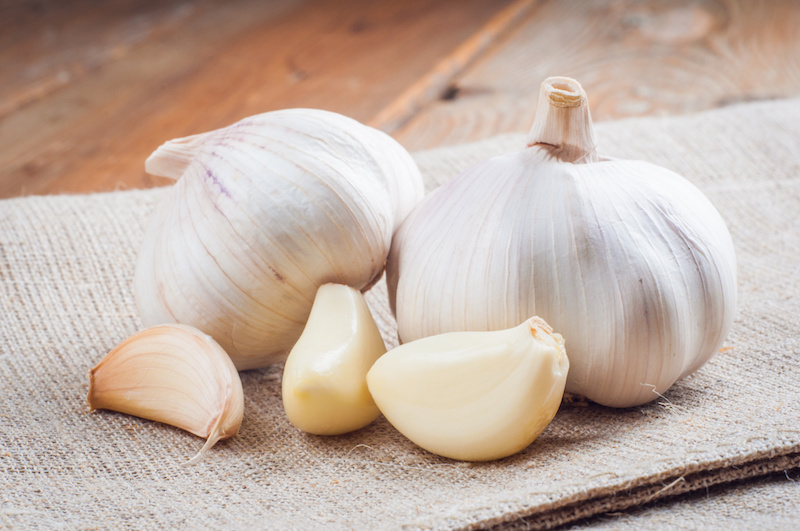
Brussels Sprouts
Each serving provides a good amount of many vitamins and minerals, including vitamin K, vitamin A, vitamin C, folate, manganese and potassium
Brussels sprouts contain an antioxidant called kaempferol, which may protect against oxidative damage to cells and prevent chronic disease. They may also help enhance detoxification in the body.
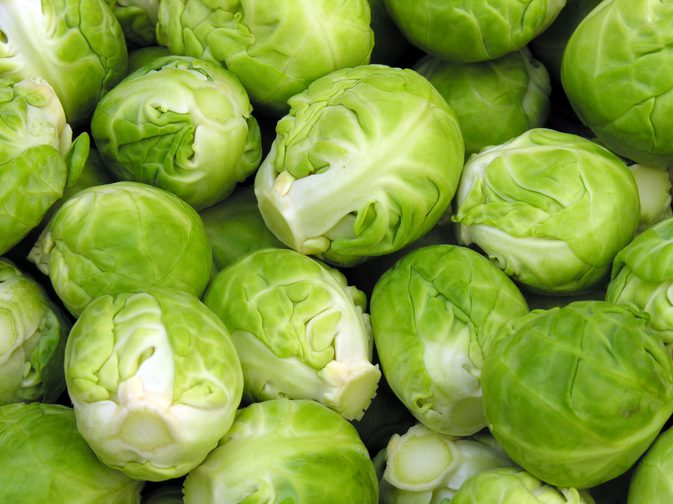
Kale
Kale Increases HDL cholesterol, decreases LDL cholesterol and increases antioxidant activity. A cup (67 g) of raw kale contains plenty of A, C, K, B vitamins, and K, Ca and Cu minerals and antioxidants.
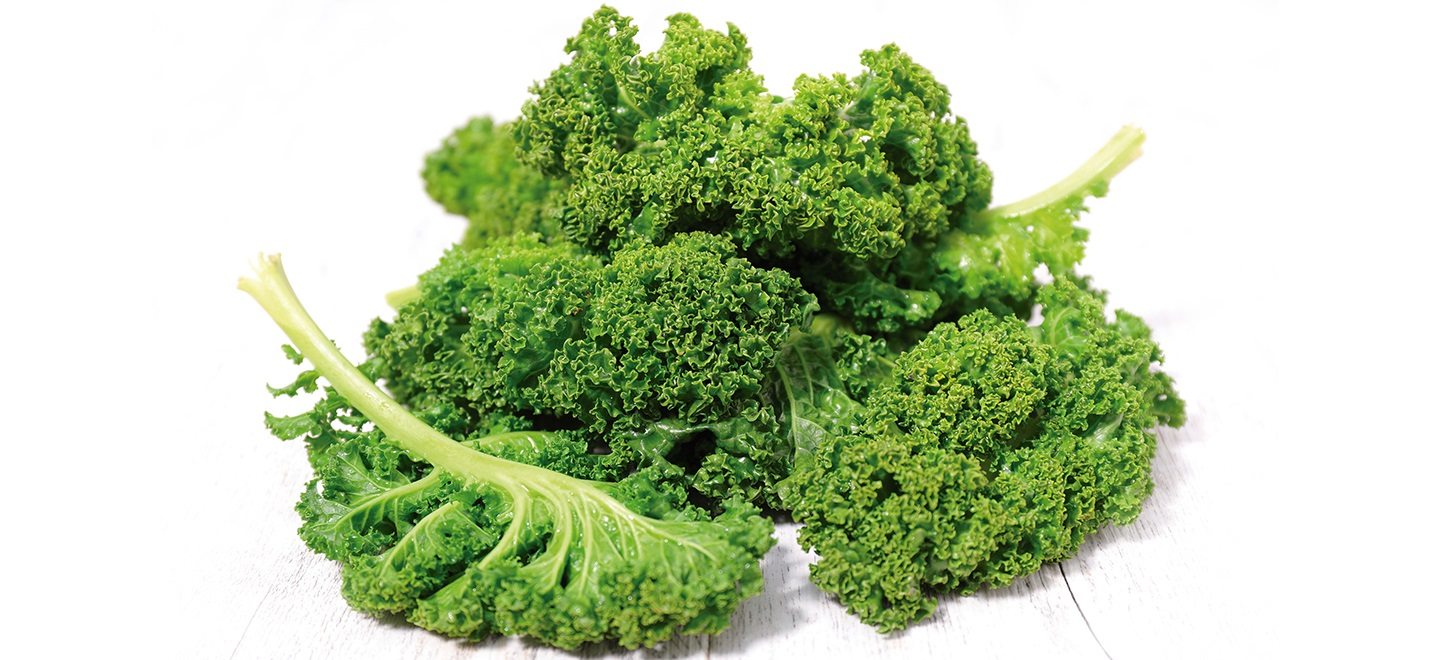
Green Peas
Contains a good amount of fiber, which helps support digestive health, and contains compounds called saponins, which may have anti-cancer effects.
One cup (160 g) of cooked green peas contains 9 g of fiber, 9 g of protein and vitamins A, C and K, riboflavin, thiamin, niacin and folate.
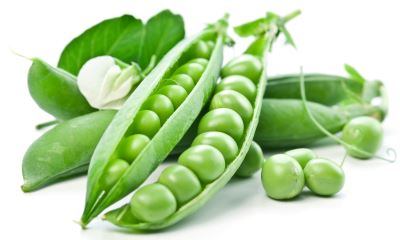
Ginger
Ginger could reduce nausea and alleviate inflammation. Its supplements may also help decrease blood sugar.
Ginger also contains potent anti-inflammatory properties, which can be helpful in treating inflammation-related disorders like arthritis, lupus or gout.
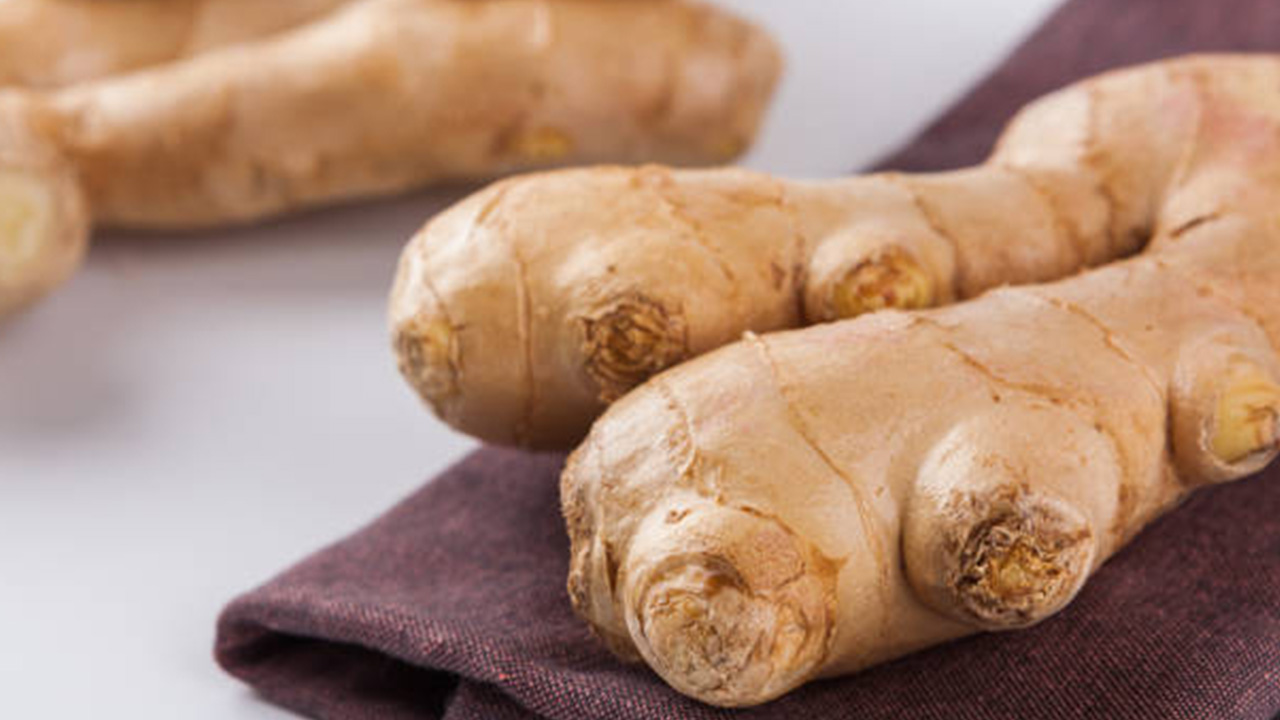
Asparagus
Asparagus is especially high in folate, which may help prevent neural tube birth defects. It can support liver function and reduce the risk of toxicity.
Just half a cup (90 g) of asparagus provides one-third of your daily folate needs, and provides plenty of selenium, vitamin K, thiamin and riboflavin.
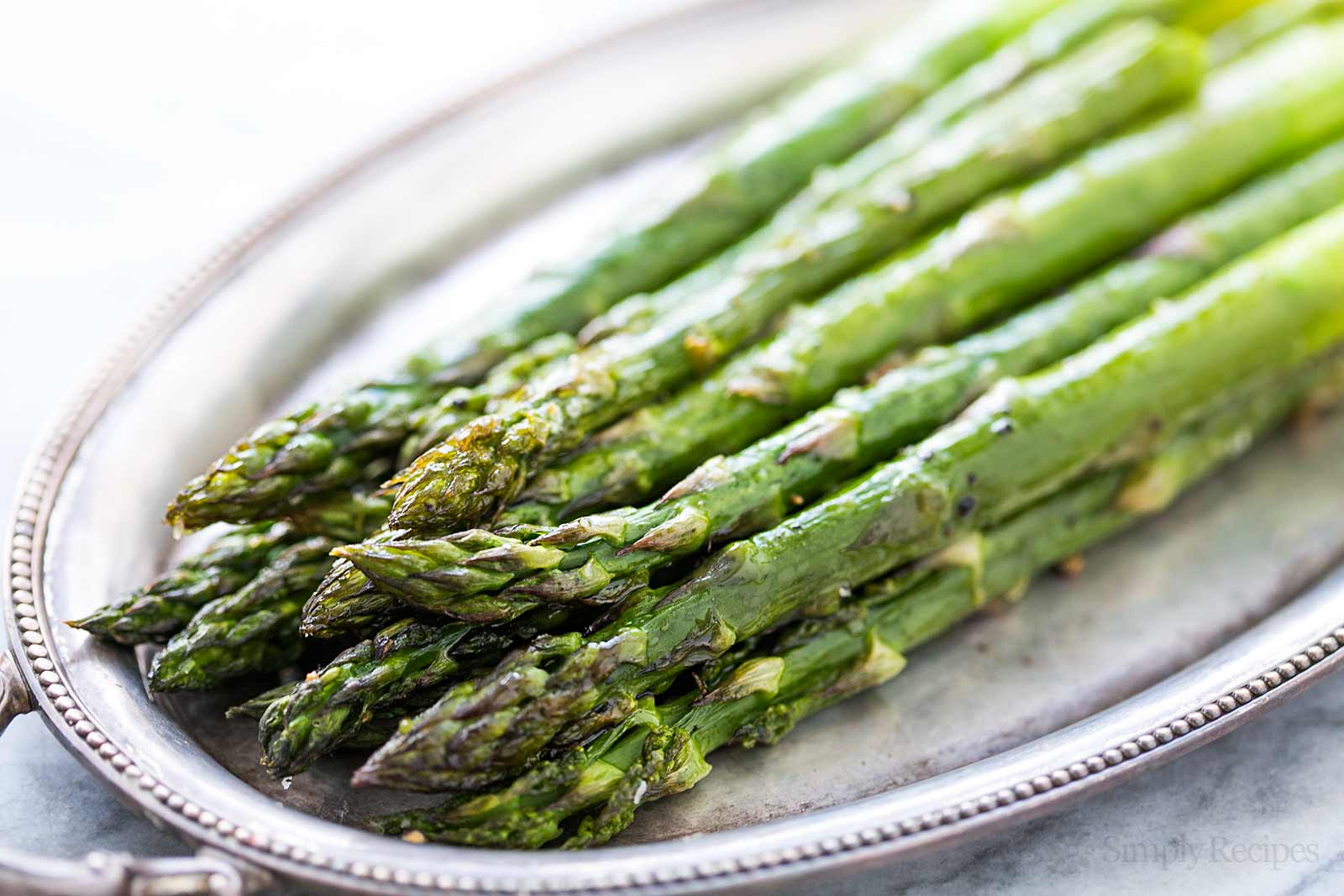
Red Cabbage
Red cabbage contains a good amount of fiber, vitamin C and anthocyanins. It may decrease blood cholesterol levels, reduce inflammation and lower the risk of heart and liver damage.
One cup (89 g) of raw red cabbage contains 2 g of fiber as well as 85% of the daily vitamin C requirement.

Sweet Potatoes
Sweet potatoes are high in beta-carotene, which may decrease the risk of some types of cancer. White sweet potatoes could also help reduce blood cholesterol and blood sugar levels.
One medium sweet potato contains 4 g of fiber, 2 g of protein and a good amount of vitamin C, vitamin B6, potassium, manganese and fulfills 438% of your daily vitamin A needs.

Collard Greens
Collard greens are high in calcium, which could reduce the risk of osteoporosis. The regular intake of collard greens has also been associated with a reduced risk of glaucoma and prostate cancer.
One cup (190 g) of cooked collard greens contains 5 g of fiber, 4 g of protein and 27% of your daily calcium needs.

Kohlrabi
also known as the turnip cabbage or German turnip,
Kohlrabi is rich in both fiber and vitamin C. Animal studies show that kohlrabi could potentially cause a reduction in blood sugar.
Raw kohlrabi is high in fiber, providing 5 grams in each cup (135 grams). It's also full of vitamin C, providing 140% of the daily value per cup.

While the vegetables listed here have been extensively studied for their health benefits, there are plenty more vegetables that are also excellent for your health. Ensure that you're getting a good mix of vegetables in your diet to take advantage of their many diverse health benefits and get the most nutritional bang for your buck.
healthline.com
 English
English Arabic
Arabic


